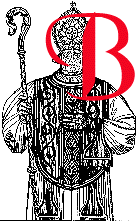 edivere, always the man to underestimate the marvellous, dismisses Gawain's ghostly prophecies, telling his king to "go forth and conquer as of old" (64). The far wiser Arthur realizes that their coming battle, his second trial, will be far different from those glorious triumphs when he and his Round Table together drove first the Romans and then the heathen from the realm. Indeed, even if he conquers, he cannot do so "as of old": since whereas he formerly fought an external enemy, he now fights internal ones, men who were once his own. Fully realizing that the "king who fights his people fights himself" (72), Arthur tells Bedivere that the stroke that destroys "my knights, who loved me once . . . is as my death to me" (73-74). This admission does more than reveal his continued love for those who have sinned against him: it demonstrates his awareness that the blows that will kill the traitor knights will simultaneously kill the Arthur of old, since without these men, once of the fellowship, he cannot remain completely himself — the great king who could unite his kingdom, giving men someone in whom to believe. Thus, Arthur can defeat Modred's forces, preventing them from gaining the realm, but he cannot be victorious in any important sense, since the very fact that the members of the fellowship fight each other means that his great purpose has failed.
edivere, always the man to underestimate the marvellous, dismisses Gawain's ghostly prophecies, telling his king to "go forth and conquer as of old" (64). The far wiser Arthur realizes that their coming battle, his second trial, will be far different from those glorious triumphs when he and his Round Table together drove first the Romans and then the heathen from the realm. Indeed, even if he conquers, he cannot do so "as of old": since whereas he formerly fought an external enemy, he now fights internal ones, men who were once his own. Fully realizing that the "king who fights his people fights himself" (72), Arthur tells Bedivere that the stroke that destroys "my knights, who loved me once . . . is as my death to me" (73-74). This admission does more than reveal his continued love for those who have sinned against him: it demonstrates his awareness that the blows that will kill the traitor knights will simultaneously kill the Arthur of old, since without these men, once of the fellowship, he cannot remain completely himself — the great king who could unite his kingdom, giving men someone in whom to believe. Thus, Arthur can defeat Modred's forces, preventing them from gaining the realm, but he cannot be victorious in any important sense, since the very fact that the members of the fellowship fight each other means that his great purpose has failed.
Related Material
- Test, Trial, and Subjectivity of Faith
- Bedivere and Arthur's Third Trial
- Bedivere's Second Betrayal of Arthur
- Passing the Test: Bedivere Keeps Faith with Arthur
- Faithlessness and the Destruction of Community
- Having Faith and Keeping Faith
Source
[This lexia has been adapted from George P. Landow, "Closing the Frame: Having Faith and Keeping Faith in Tennyson's 'The Passing of Arthur.'" Bulletin of the John Rylands University Library of Manchester, 56 (1974), 423 — 42.]
Last modified 30 November 2004